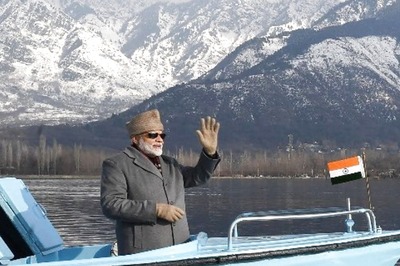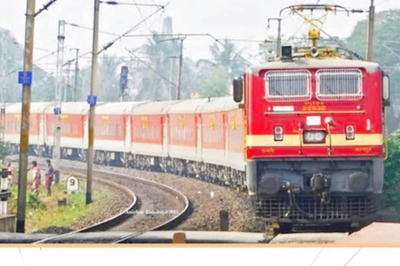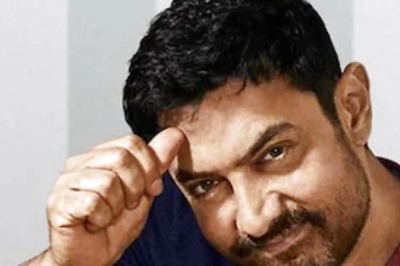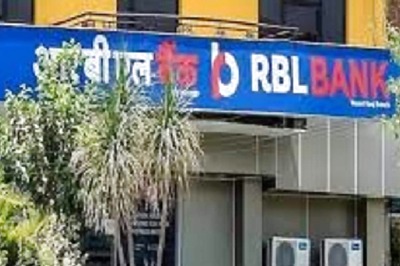
views
Sanaa: Yemen's veteran president Ali Abdullah Saleh has struck a defiant tone in an interview, a day after his government said he had accepted a Gulf Arab plan to hand over power within weeks.
Saleh has faced down three months of street protests as well as pressure to go from his main backers Saudi Arabia and the United States, and opposition groups fear his verbal acceptance of the plan may be no more than a tactic.
"We are going to stick to constitutional legitimacy. We won't accept 'constructive chaos'," he told BBC Arabic television on Sunday, using language that some fear means he intends to see out his presidential term to September 2013.
"Who should I hand power over to? Insurrectionists?"
Saleh has ruled in Yemen for nearly 33 years, overseeing the unification of North and South Yemen in 1990.
Growing popular discontent with endemic poverty, corruption and lack of opportunity has been galvanised into mass protest by the success of revolutions in Tunisia and Egypt. Scores of demonstrators have been killed in the unrest.
Protesters demanding Saleh's immediate resignation vowed on Sunday to step up street protests and voiced suspicions that his inner circle could frustrate the Gulf proposal, which calls for him to step down within a month of signing the plan together with the opposition.
No announcement has been made as to when and how the agreement would be formalised. The main opposition coalition welcomed the plan but stopped short of a full endorsement, saying it was still negotiating with Gulf and U.S. mediators over its role in a transition government.
The youths and activists who provided the momentum for the anti-Saleh protests are sceptical. They do not trust Saleh, and worry that the ruling party and the opposition, which served in parliament before the protests, will ignore the wishes of the tens of thousands in the streets demanding democratic reforms.
They are also angry that opposition leaders have agreed to immunity for prosecution over corruption and the deaths of protesters for Saleh and his family and key aides.
"There's a lot of resentment among the youths because the opposition agreed to this initiative," said Abdulhafez Muajeb, leader of a protest movement in the Red Sea port of Hudaida.
"From our end, we will escalate our protests until we force the president to step down immediately."
In Sanaa, where protesters have camped out for weeks, many shouted: "No negotiation, no dialogue -- resign or flee."
Risk of violence
Analysts say that even if Saleh signs the transition plan, starting a 30-day period for him to resign, an opportunity for unrest exists that could derail the plan.
"Tribal leaders or the president's sons or other leaders could do anything, because by this agreement they will be the losers," Yemeni analyst Ali Seif Hassan said. "If there is no civil war, they will lose. But if there is a war, they could be winners because they would lead the fighting."
That would worry Washington and neighbouring top oil exporter Saudi Arabia, who fear that a descent into chaos would leave room for al Qaeda's ambitious Yemen-based wing to further entrench itself. Yemen sits on a strategic sea lane where some 3 million barrels of oil pass daily.
Playing on these fears, Saleh told the BBC the group had a presence among renegade army units protecting protesters in Sanaa. "Al Qaeda is moving among the army units that acted illegally," he said.
At least half of Yemen's 23 million people own a gun, and many analysts fear that the country could descend into widespread bloodshed if the crisis drags on.
Clashes between Saleh loyalists and protesters broke out on Sunday in the city of Turbah, in the Taiz province south of the capital Sanaa. Police opened fire to break up the clashes, residents said, and three protesters and one loyalist were hurt.
As unrest has continued, prices have rocketed. The price of cooking gas has quadrupled. The Yemeni rial has fallen to 243 against the dollar from 214 nine weeks ago.
"The longer this goes on, the worse for the economy. As the economy continues to decline, you'll see more and more people in the streets, but it's not yet certain whose side they'll be on," said Yemen scholar Gregory Johnsen.
Saleh has also attracted rallies of supporters in the tens of thousands. He has also maintained his support from most military units, many of which are run by his relatives.
A Republican Guard unit run by Saleh's son fired on the Had district in the southern province of Lahej on Sunday, residents told Reuters, in retaliation for an earlier attack by armed tribesmen on its troops. Six people were killed in clashes that followed, three of them soldiers.




















Comments
0 comment